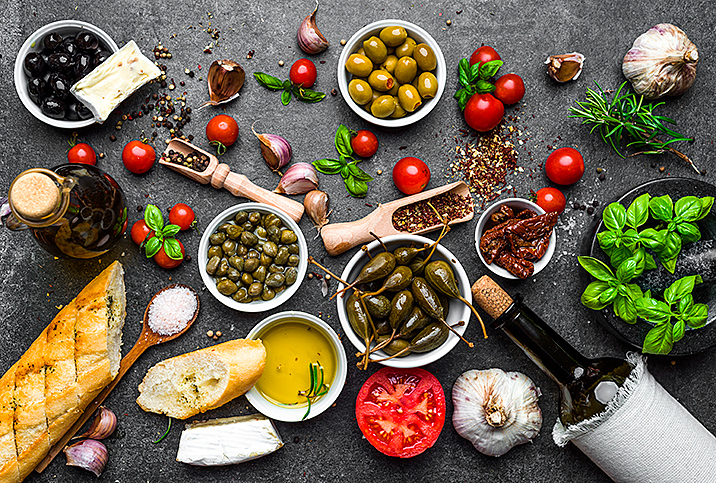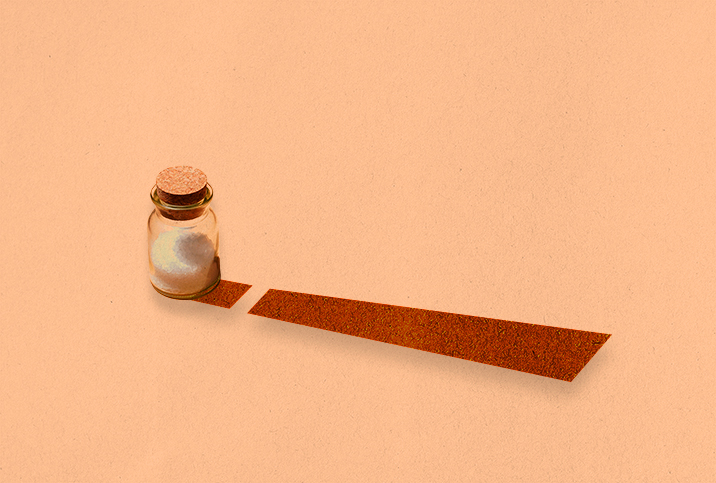Are Carbs Your Friend or Foe?

Carbohydrates—or carbs, as you might know them—are often decried by a certain sect of the weight-loss industry as the worst macronutrient you can add to your daily diet. On the flip side, other folks eulogize endlessly about how carbs are an essential part of a balanced dietary regimen. Settling the debate over who has it right begins with understanding what carbohydrates are and what they do in the body.
Carbohydrates are molecules of sugar. When you eat or drink foods that contain carbs, your body breaks them down into blood sugars, better known as glucose. Glucose is what powers our cells to ensure we have the energy we need to perform bodily functions such as regulating our internal body temperature, using our brains to process information, and digesting our food.
Good things come in threes
There are three types of carbohydrates: sugars, starches and fiber.
Sugars
Sugars are considered simple carbohydrates because they have only one or two molecules and are, therefore, easier for your body to break down into glucose. This provides quick access to power for your body, often in as little as 15 minutes. For example, if you didn't get enough sleep last night and have an hour-long class to get through, drinking a soda before heading in may help you stay awake and alert. Sugars come from various sources in various forms, including fructose, which is found in fruits such as apples and tomatoes, and lactose in dairy items like milk and cheese.
Starches
Starches are considered complex carbohydrates and are made up of long strings of sugars. These strings need to be chopped up so the smaller molecules can be broken down into glucose. The extra step means it takes longer for your body to access the subsequent energy. Consuming starches throughout the day can provide steadier and more reliable stamina. For instance, if you're going to run a marathon or know you'll be working overtime, starches can provide longer-lasting energy to get you through multiple hours of effort compared with simpler carbohydrates.
Fiber
Fiber is another form of complex carb. Your body isn't able to break down fiber in the same way it can break down sugars and starches. The extra material sitting in your stomach helps you feel like you've eaten more than you actually have. Feeling fuller can help keep you from overeating so you can maintain a healthy weight. Fiber on its way out of the body also helps ease symptoms of constipation. Fiber is found in many vegetables, fruits, beans, whole grains and seeds.
Healthy carbs vs. unhealthy carbs
"There's no such thing as a 'bad' carbohydrate," said Nadeem K. Mohammed, who holds a doctorate in nutritional sciences and is based in Atlanta. "Carbs can give you the energy that helps your body function, no matter what form they take. Balancing how much of each kind you're consuming is the key, not to eliminate carbs from your diet completely."
It wouldn't be easy or healthy to rid yourself of carbs, Mohammed said. You would be left with only meat and a select few dairy products, such as butter, to consume. A diet like this can become uncomfortable or even unhealthy. For instance, without any simple carb intake, your sugar levels can plummet, leaving you weak and drowsy. Eliminating fiber from your diet could mean battling constipation on a consistent basis.
Instead of looking at carbs as "good" or "bad," Mohammed suggested thinking of them as different tools to give you what you need each day. Sugars provide energy for the short term that you can use to your advantage when you need a jolt of pep before a short, vigorous workout or even some passionate sex. Starches offer energy you can access over a longer period of time for doing activities that require extended endurance, such as walking to distant locations (or having passionate sex for a long time). Fiber helps reduce overeating and keeps your digestive system running smoothly.
You may have different dietary needs related to carbs depending on your medical history, age, activity level and other factors. Talk to your doctor for advice on how to balance your carb intake for your needs and lifestyle.
You may have heard eating carbs "causes" obesity, but this isn't accurate. Companies trying to sell weight-loss programs and products often say carbs are the cause of obesity and you should avoid consuming them. While carbs can lead to weight gain, so can fats and just about anything else you eat or drink if you consume them in excess.
Eating high-sugar candy multiple times per day or consuming only stuffed manicotti for every meal is when things start to get risky for your health. It's hard to maintain a healthy weight if you are constantly overeating and rarely (or never) using the energy you consume.
How to balance your carbs
You should balance the kinds of carbs you consume in the same way you balance the rest of your diet. Bring sugars, starches and fiber together into meals that provide multiple nutrients. The best diets are not focused on any one kind of food but on a rich balance of variety.
Work with your doctor to figure out what works best for your body. For instance, someone who suffers from chronic low blood sugar (hypoglycemia) may benefit from keeping simple sugars such as candy or sodas on hand to quickly bring dangerously low sugar levels back up. However, someone who has type 2 diabetes might do well to eat more fiber-rich foods such as avocados or lentils, as simple carbs would likely cause dangerous spikes in their blood sugar.
After discussion with your doctor on quantities and quality, you may want to incorporate some of these carbs into your dietary regimen:
Sugar, or simple carbs
- Fruits such as bananas, mangos, pumpkins and cantaloupe
- Processed foods such as sodas, candy and cakes
- Dairy products such as milk, ice cream and yogurt
- Sweeteners such as raw honey, table sugar and agave nectar
Starches and fiber, or complex carbs
- Whole grains such as barley, brown rice and whole wheat bread.
- Beans such as black beans, kidney beans, chickpeas and pinto beans
- Starch-rich foods such as potatoes, cassava and corn
- Fiber-rich foods such as nuts, raw berries and bran
Carbohydrates are not the enemy. In the same way that it would be unhealthy to eliminate all fat, salt or vitamin C from your diet, avoiding the consumption of carbs can lead to a variety of health issues. The trick is to eat sensibly and exercise, even if it's just a short walk every day. Enjoy carbs in their various forms but don't go overboard with any one kind. Consuming a diet with the right balance of carbohydrates for your body can help you live a longer, happier and healthier life.
When in doubt, consult your doctor about a diet and exercise plan that works for you and your medical and lifestyle needs.


















